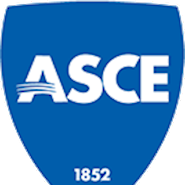ASCE has honored two winners with the 2022 Arthur Casagrande Professional Development Award. They are Alejandro Martinez, Ph.D., EIT, A.M.ASCE, for pioneering research using multiscale interdisciplinary techniques that have advanced the emerging field of bio-inspired geotechnics, characterization of unconventional materials, and customization of soil-structure interfaces for civil infrastructure and site characterization tools; and Brett W. Maurer, Ph.D., A.M.ASCE, for his many accomplishments in teaching and research in geotechnical earthquake engineering, particularly the assessment of soil liquefaction hazards.
Martinez is recognized for his pioneering work in the emerging field of bio-inspired geotechnics, in characterizing unconventional materials, and in controlling the properties of soil-structure interfaces. Bio-inspired geotechnics lies at the intersection of biology and geotechnical engineering, with its core belief being that solutions present in nature and developed by biological evolution can provide unique inspiration and solutions to develop new, sustainable technologies for geotechnical practice. Innovations that Martinez has significantly contributed to include (1) snakeskin-inspired anisotropic surfaces to optimize the performance of soil-structure interfaces present on piles, geomembranes, and pipelines, (2) worm- and caecilian-inspired self-penetrating in situ probes to optimize characterization of the subsurface, and (3) tree root–inspired anchorage and foundation systems that require a fraction of the materials and energy relative to current industry solutions.
He has also provided insights into unconventional materials such as fly-ash, a waste material from coal combustion that is stockpiled in impoundment facilities across the country. Using the UC Davis NHERI centrifuge facility, he performed fly-ash runout tests, working to connect fly-ash moisture content with material characterization (cone penetration, shear wave velocity) and the stability and flow failure of impoundments. Martinez has also contributed to innovative characterization and customization of how structural loads are transferred across soil-structure interfaces, from a pile foundation to the surrounding soil, for example, in order to improve civil infrastructure performance.
Maurer has established himself as one of the world’s leading young geotechnical engineering researchers, particularly in the area of earthquake-induced soil liquefaction. Liquefaction is a phenomenon in which the strength and stiffness of a soil deposit can be dramatically reduced by earthquake shaking, leading to damage and destruction of buildings, bridges, dams, pipelines, and other critical elements of infrastructure. Maurer has painstakingly collected, processed, and archived the largest case history dataset ever assembled for the triggering and seismic performance of liquefiable soils, and has made it available to all researchers. He has used this and other data to develop innovative tools that provide more complete and consistent assessments of liquefaction hazards, encapsulated in Horizon, a public-domain, Python-based computational platform.
He has also investigated the efficiency of geospatial triggering models, which do not require detailed geotechnical data, for planning and emergency response purposes. He has applied and extended paleoliquefaction (i.e., geologic investigation and dating of prehistoric liquefaction features) interpretation tools to the problem of locating and characterizing magnitudes of historical, pre-instrumental earthquakes in the Pacific Northwest. His research has been recognized with several honors, most notably a CAREER award from the National Science Foundation and, in 2016, the prestigious Norman Medal given to the most outstanding paper in all 35 ASCE journals. Also regarded as a highly skilled teacher with the highest student ratings in his academic department, Maurer has clearly established himself as one of the emerging leaders of geotechnical engineering research and education.
The Arthur Casagrande Professional Development Award is presented in recognition of outstanding accomplishments evidenced by completed works, reports, or papers in the field of geotechnical engineering. The award was established to provide professional development opportunities for outstanding young practitioners, researchers, and teachers of geotechnical engineering.



